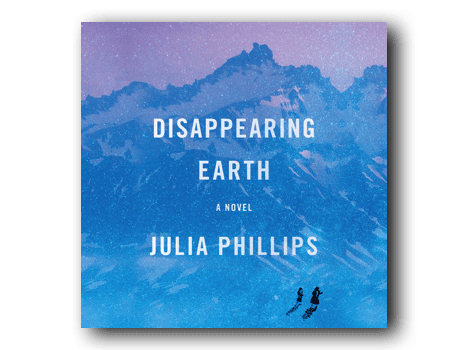On the Kamchatka Penninsula, a relatively isolated part of Russia, two girls go missing. Eleven-year-old Alyona and eight-year-old Sophia, alone and trusting, accept a ride from an unknown man and vanish.
Disappearing Earth then moves through each month of the subsequent year, telling the stories of a wide variety of characters, all of whom have some link, however tenuous, to the missing girls.
There’s Ksyusha, a young woman from the indigenous Even people in the north, attending university in the city. She is accustomed to living under the thumb of her northern boyfriend, but begins to explore the new world of university life. There’s Oksana, witness to the abduction, who’s closest ally is her dog Malysh. When he escapes from her apartment, Oksana is broken. And there is Natasha, who’s own sister Lilia disappeared at age 18 and whom the police have deemed a runaway.
Many of the characters in Disappearing Earth come from small villages and tribes in the northern part of Kamchatka. Some grew up moving with the herds through fields and wilderness and living outdoors for much of the year. As they grow into adulthood, they are confronted with modern city life: the joys and benefits, as well as the loneliness and disconnection.
Julia Phillips uses the book to explore the culture clash between indigenous people and Russians, and between older and younger generations. Her commentary applies to many cultures around the world and is of particular significance in Canada.
The book’s final chapter introduces Marina, mother of the missing girls. She struggles with media attention, an inept police department, panic attacks and the need to forge ahead with day-to-day tasks. Fraught with pain and anguish, Marina stumbles upon a tip regarding her daughters’ whereabouts which leads to the book’s satisfying conclusion.
Phillips’ novel is more than a mystery. Although a story about the abduction of young girls could certainly be disturbing and difficult to read, I found Disappearing Earth to be very readable and I had no trouble with the content. It is really a novel about disappearing culture and youth, and the changing face of Russia.
For other reading suggestions visit Richmond Public Library’s website at www.yourlibrary.ca/goodbooks.
Christine McCrea is a Kids' Place librarian at Richmond Public Library.



